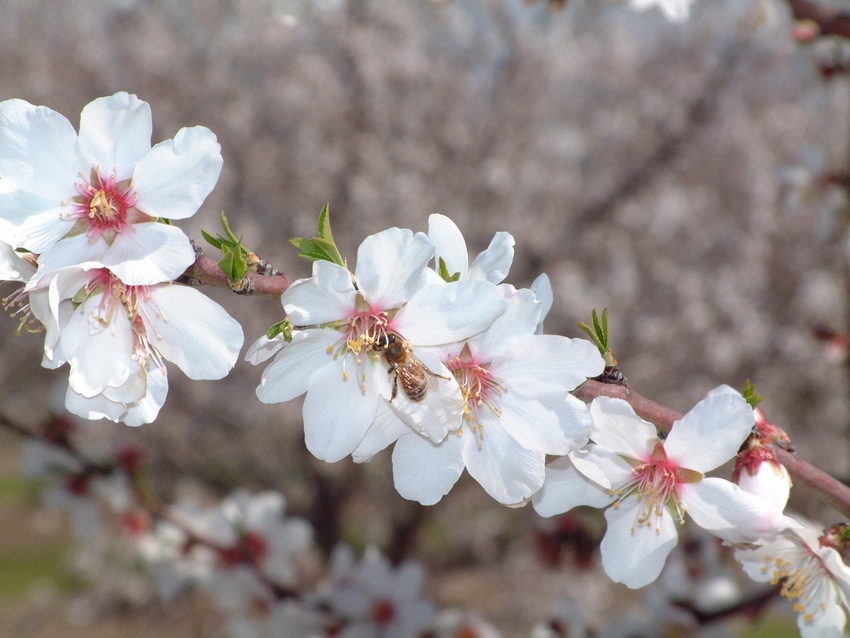June 20, 2017

This week – June 19-25 - is National Pollinator Week as declared by U.S. Department of Agriculture Secretary Sonny Perdue to draw attention to declining pollinator numbers.
USDA’s Natural Resources Conservation Service has conservation partners including the Xerces Society for Invertebrate Conservation to help farmers plan and implement conservation practices to benefit bees and other pollinators.
Did you know?
1 in 3 bites of the food comes from insect pollination;
About 3,600 bee species are native to North America; and
About 30 percent of North American bumble bee species are in decline.
Through a new certification program called Bee Better Certified (BBC), agricultural producers can show consumers how their farming practices benefit bees.
Through a USDA grant, the Xerces Society partnered with Oregon Tilth to develop and launch the BBC program. Xerces Executive Director Scott Hoffman Black says the program is working with conservation-minded farmers to meet consumers’ growing interest on how their food choices impact bees.
“Many species of bees have suffered declines over the years, but by creating habitat and reducing pesticide use, Bee Better is generating meaningful change on working farms, helping to preserve crop pollinators, and the valuable services they provide to farmers,” Black said.
The project received a $350,000 NRCS Conservation Innovation Grant (CIG) last year, funds matched by Xerces. CIG supports public-private innovation to drive next-generation conservation efforts.
Nationally available
After piloting the program with 13 farmers over the past few months, Xerces and Oregon Tilth are now opening it to farmers nationwide.
NRCS Acting Chief Leonard Jordan said, “About two-thirds of the country is privately owned, meaning the land management choices of our nation’s farmers, ranchers, and forest landowners can have positive impacts from pollinators.”
Jordan added, “We’re inspired by the many men and women who step up and voluntarily implement conservation practices on their land, which benefits bees and other pollinators as well as our soil, water and air.”
NRCS offers more than three dozen conservation activities which farmers can tap to integrate bee habitat amid working lands and to wisely use pesticides.
How does Bee Better work?
The program focuses on integrating flower-rich habitat on farms to provide food and nesting sites for native bees, honeybees, and other pollinators. It also helps farmers reduce or eliminate pesticide use which can harm bees.
Farmers can learn more about Bee Better at www.beebettercertified.org. Those interested in NRCS conservation practices should contact their local USDA service center.
You May Also Like




